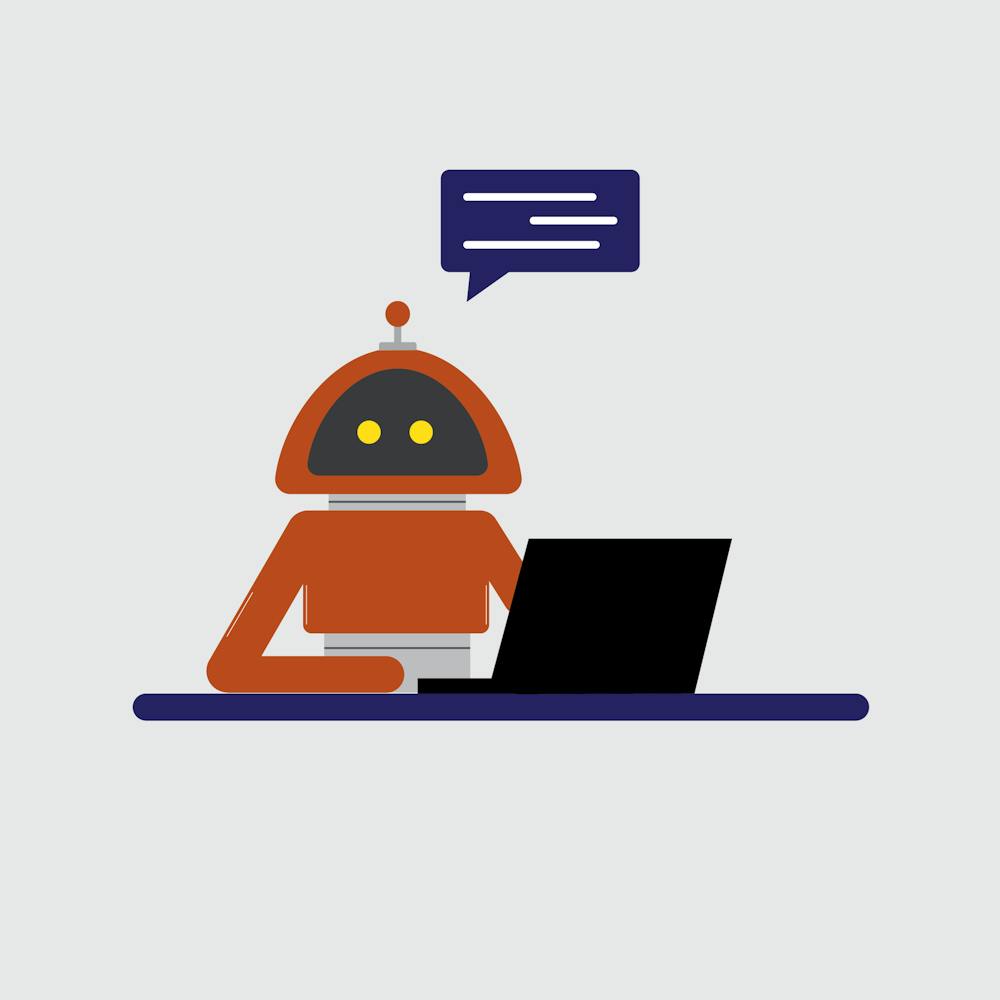In today’s rapidly evolving job market, one of the biggest developments is the integration of artificial intelligence (AI). As AI's prevalence grows, it is crucial for the next generation to grasp its significance and acquire the skills needed to thrive in AI-integrated workplaces after graduation. Efforts are being made at Auburn to ensure graduates are familiar with AI.
Dr. N. Hari Narayanan, Chair of Computer Science and Software Engineering Department and Lead for AI@AU Initiative, and Dr. Gerry Dozier, Director of the Artificial Intelligence and Identity Research Lab in the Samuel Ginn College of Engineering, have both been working with AI for over 20 years and are actively watching its prevalence grow.
Their advice for Auburn students centers around getting familiar with AI and taking advantage of the resources Auburn offers.
Dozier emphasized the importance of embracing AI as a tool more than anything.
"We don't know what tools are coming out next, but we know these tools are going to make our life and work better and make us more efficient at doing whatever we need to do and the tools now are already doing that," Dozier said.
While many are familiar with ChatGPT or CoPilot, free-to-use AI systems that engage in conversation with the user, many developments are being made behind the scenes in the workforce. One example of this, described by Narayanan, would be eliminating tedious tasks such as reading resumes.
"Think of a company like Amazon, which gets thousands upon thousands of applications a year where they don’t have the people to read through every single one," Narayanan said. "What AI can do is feed those resumes into a system where they’re specifically trained on reading and understanding resumes and the system will give back the top 100 or top 50, tailored specifically to the kinds of qualities of skills that Amazon is really looking for."
Companies with enough human power to build their own AI systems are making strides toward providing their employees with these resources.
When asked about advice for students who may be freaked out by the idea of AI, Dozier's response was simple: “Don’t be.”
“Don’t be scared, be curious. Just jump in and have some fun, and once you’ve learned how to use one AI tool, you’ll be able to transfer what you’ve learned to something else," Dozier said.
One concern about AI and chat websites specifically is how often they are being updated, affecting the information's accuracy. ChatGPT 3.5 has not been updated since 2022 and provides users with a handful of out-of-touch information.
“It’s never going to be completely up to date. In the one minute that just passed, probably a million new websites were created, and it will take time for ChatGPT to get trained on those, but the web is never ending,” Narayanan said.
With the knowledge that systems such as ChatGPT will never know ‘everything,’ it’s important to check the information yourself before using it.
“You always have to be cautious of that, and double-check the output of an AI system before using it for anything,” Naranayan said.
Additionally, for those who are freaked out by the idea of AI, Dozier highlighted the fact that it is already ‘everywhere.’
“We’re using it, and we don’t even know we’re using it,” Dozier said. “It’s everywhere. And it's been there. Even though we weren’t told it’s AI, the systems that will help you do A, B and C are all based on artificial intelligence.”
One example of this is Siri, which is not commonly recognized by the average user as AI.
“Just because Apple never pushed Siri as an AI system doesn’t mean it’s not one. It is an AI syndrome, as is Google and Apple Maps," Narayanan said. "If you look under the hood of all these technologies, AI is practically everywhere."
According to Dozier and Narayanan, AI has been widely used since smartphones became popular but was not widely recognized until a few years ago, when the actual word “AI'' started popping up on news channels.
“Before that, it was in what I call the stealth mode,” Narayanan said. “Companies were putting it out there, making people use it, but never made public that the AI technology was there. There was no need for it.”
Both professors agreed that all students will need to know how to use AI in their future profession.
“Any chance you get to understand any more about artificial intelligence is really important, and it’s definitely going to give you a competitive advantage,” Dozier said.
Narayanan provided advice on how students could learn more about AI.
“Learn the skills and knowledge you can and then build on it. Any time there’s a campus AI event, you should go to it. And you’ll always learn something,” Narayanan said.
Auburn offers a multitude of resources dedicated to helping students understand how to use AI before graduating. Introduction to Management Information Systems, taught by Dr. Asim Ali, provides students with an introduction on using AI and how it is currently shaping workforces and information systems.
Dedicated to advancing the frontiers of AI knowledge at Auburn, AI@AU hosts events on campus regarding AI somewhat regularly, with the final one passing on April 11, 2024. Additionally, AI@AU forum presentations occur every semester.
Auburn has also approved a no-prerequisite AI course titled "The Power of AI: Fundamentals to Applications." It is scheduled to be pilot tested in the 2024-2025 academic year and will hopefully be widely available to all students starting in the 2025-2026 academic year. More courses are available, listed on the Auburn Biggio home page.
All students are welcome to reach out to Ali, Dozier and Naranayan if they have any more questions as well as participate in any of AI@AU events.
Do you like this story? The Plainsman doesn't accept money from tuition or student fees, and we don't charge a subscription fee. But you can donate to support The Plainsman.





